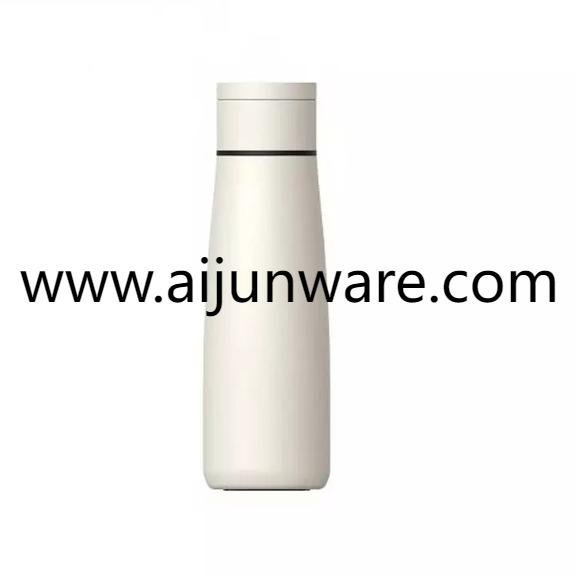Aijunware Thermos Vacuum Insulated Bottle Manufacturer Does Vacuum Really Work

Heat waves in cities and cooler mornings on the trail have made insulated bottles an everyday conversation piece, and choosing a reliable Thermos Vacuum Insulated Bottle Manufacturer now matters to many people who carry drinks all day. At the heart of what keeps a drink hot or cold is a narrow gap where air is removed and heat transfer stalls. Understanding how that vacuum layer works helps you pick a bottle that performs reliably during commutes, outdoor sessions, and long workdays.
A vacuum layer reduces three common routes of heat loss. First conduction is limited because there is no air to carry thermal energy between the inner and outer walls. Second convection is blocked since the vacuum prevents the movement of air currents inside the bottle. Third radiation is managed by reflective inner surfaces that send infrared energy back toward the liquid, slowing cooling or warming. Together these features make a bottle feel like a small thermos laboratory in your hand.
Design choices beyond the vacuum pocket also make a practical difference. A tight threaded mouth and a secure gasket reduce heat loss through the cap area, where warm air can otherwise escape. Lids with minimal vents or insulated stoppers limit exchange with the outside environment. Materials matter too: stainless interiors do not retain flavors and resist corrosion, while outer finishes focus on grip and durability so the bottle remains useful under daily knocks.
Real world performance depends on use. A bottle that keeps coffee comfortable across a long commute also protects chilled drinks from sweating in a hot bag. The vacuum layer does the heavy lifting, but lids and seals play the finishing role. That is why regular inspection of gaskets and careful cleaning are part of keeping insulation working well over many cycles. A worn seal can undermine an otherwise effective vacuum design, so maintenance is more than cosmetic.
Manufacturers tune the vacuum design to match routines. Narrow mouths reduce surface area exposed to air and slow cooling when a bottle sits idle. Wider mouths let you add ice and simplify cleaning but can lose heat faster if left open. Consideration of daily habits—sipping slowly, topping up at refill stations, or packing the bottle in an insulated sleeve—helps you match a bottle's features to how you actually use it.
Testing under different conditions shows how vacuum systems behave. When you move between cold outdoor air and warm indoor spaces the vacuum keeps internal temperature steady, reducing the need for reheating or quick refrigeration. For people attending outdoor events or travelling with packed bags, a bottle that resists temperature drift protects both comfort and the contents of the bag. That practical reliability makes vacuum insulated bottles common among commuters, outdoor fans, and people supporting refill initiatives.
Sustainability conversations in public spaces also shape how people view insulated bottles. A reliable vacuum insulated bottle that holds temperature for hours encourages reuse and reduces disposable waste at refill points and venues. That civic angle connects personal comfort to broader efforts to cut single use containers out of everyday routines.
Finally, choose a bottle with parts you can maintain. Replaceable gaskets, removable lids, and materials that tolerate warm rinses extend working life and keep performance stable. Small habits—rinsing after use, airing the cap, and checking seals—help the vacuum layer do its job day after day.
If you want a combination of steady temperature retention, careful materials, and maintainable parts in your bottle selection, consider options that pair reliable vacuum engineering with user friendly lids and durable finishes. For a range of vacuum insulated bottles built with these priorities in mind see the selection at www.aijunware.com .
- Art
- Causes
- Crafts
- Dance
- Drinks
- Film
- Fitness
- Food
- Games
- Gardening
- Health
- Home
- Literature
- Music
- Networking
- Other
- Party
- Religion
- Shopping
- Sports
- Theater
- Wellness
- knowledge



